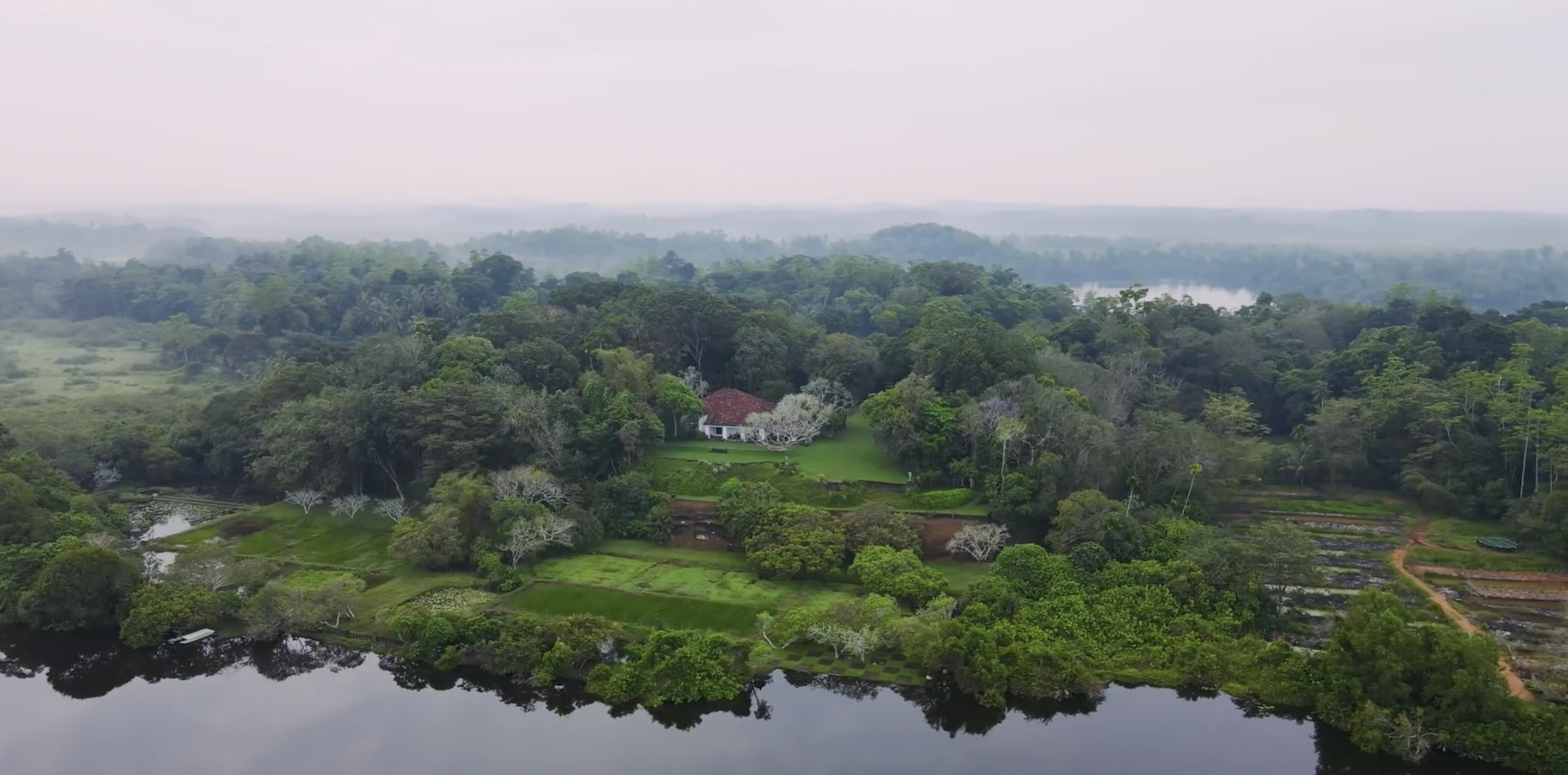
The Genius of the Place:
The Life and Work of Geoffrey Bawa,
Sri Lanka’s Premier Architect
Geoffrey Bawa is the greatest architect you’ve never heard of.
A groundbreaking documentary exploring the work of Sri Lanka’s most important architect …how he decolonized 20th century architecture and inspired Asia to live more naturally, sustainably and beautifully.
OFFICIAL SELECTION
Watch the trailer
“A long overdue cinematic paean to the Sri Lankan architect’s outsized talent and his fabled sensitivity to the terrain....many of the scenes shot with a drone giving Bawa’s projects a gratifyingly fresh perspective.”
“A 74 minute long cinematic ode to the Sri Lankan architect’s magical talent with gardens and landscape.”
The Architect:
Geoffrey Bawa
Geoffrey Bawa (1919-2003) is widely regarded as one of South Asia’s most important architects of the 20th century - the equivalent of Frank Lloyd Wright in America, Luis Barragan in Mexico or Oscar Niemayer in Brazil.
Despite many challenges throughout the years - the restrictions of building materials in post-war Sri Lanka, a thirty year Civil War that fractured the country, opposition from environmental and religious groups to one of his projects, and a series of strokes that left him paralyzed - Bawa prevailed, creating a body of work that is legendary in scale, scope and ambition.
While his work has been celebrated in books, his work has been undiscovered by global audiences utilizing the medium of film. Using groundbreaking aerial photography, this film shows the deep inter-relationship between Sri Lanka’s beautiful landscapes and these stunning buildings which blur the line between the inside and the outside - one of his signature contributions to the world of architecture and design.
Conceived and created by Sri Lankan filmmakers (and some wonderful allies), this project celebrates an icon and a hero for the country and it’s people.
This documentary celebrates five of his most important projects - ranging from ocean fortresses like the Lighthouse Hotel and jungle palaces like the Kandalama Hotel, to groundbreaking private houses like the Ena De Silva House and the Jayawardene ‘Red Cliffs’ House, to his magnum opus: his country estate Lunuganga, a fifty year garden where his ashes are buried. In each location, we try to connect with ‘The Genius of the Place’ - the unique spiritual energy - which Bawa used as his inspiration.
Copyright Three Blind Men










